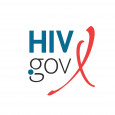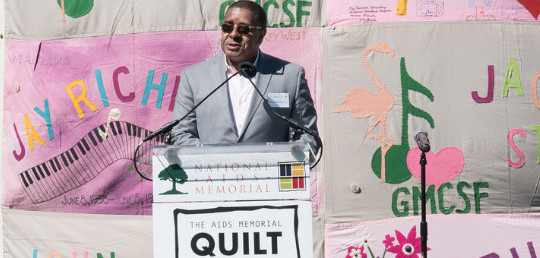By Harold Phillips
As my time as Director for the White House Office of National AIDS Policy (ONAP) ends, I find myself reflecting on the incredible journey we’ve undertaken together over the past two and a half years. It has been an honor and a privilege to serve in a role dedicated to addressing one of the most pressing public health challenges of our time—HIV.
During this tenure and with your help, we have continued to achieve incredible milestones in the fight to end the HIV epidemic, while also combating COVID-19 and mpox. We continued implementing initiatives to increase access to testing and treatment, reducing new infections, scaling up access to and awareness of PrEP, and ensuring that those with HIV receive the care and support services they need. Communities, federal agencies, healthcare providers, and advocacy groups have worked collaboratively and tirelessly to dismantle HIV stigma and discrimination and foster discussions and efforts on ways to achieve health equity.
President Biden released the National HIV/AIDS Strategy (NHAS) to guide our collective efforts through 2025. Developed with community input, the Strategy calls upon all sectors of society to accelerate our efforts and to create new and innovative partnerships and collaborations. It was built on multiple layers of expertise from those with lived experience to researchers. If you have not read this document (PDF, 1.76MB), or its summary (PDF, 142KB) fact sheets (PDF, 157KB), I encourage you to. I truly believe this roadmap is a key tool to help us be bolder and stronger in our HIV response. The NHAS incorporates the latest data on HIV incidence, prevalence, and trends and expands the focus on addressing the social determinants of health that influence an individual’s HIV risk or outcomes. Quality of life measures were added as indicators to help emphasize the importance of wholistic health and well-being. The Strategy highlights the needs of those with HIV over 50 and weaves HIV research more broadly across the objectives, as well as the need to move research findings more quickly into practice.
In addition to the NHAS, the release of the Federal Implementation Plan (PDF, 706KB) and the NHAS Interim Action Report (PDF, 386KB) were also completed. These both highlight some of the key activities federal partners are undertaking to achieve the goals of the Strategy. Additionally, federal partners gathered to share ideas and innovations between PEPFAR countries and federal staff working on domestic programs and created a bi-directional program to enhance cross-government learning and program outputs. COVID-19 and mpox presented new challenges but also opportunities to implement a syndemic approach to our work, while the Ending the HIV Epidemic in the U.S. initiative continues to make an impact in communities across the nation.
As I reflect upon my time at ONAP, several moments are particularly impactful.
- President Biden released a new National HIV/AIDS Strategy on December 1, 2021, World AIDS Day.
- Working with the White House Mpox Coordination Team to create an Mpox Equity Workgroup, proving that when we center community within our approach, we can achieve a more equitable response. Developing and releasing new quality of life measures for people with HIV emphasizing the need for a measurable approach to whole person HIV care.
- FDA ended its discriminatory ban on gay, bisexual, and other men who have sex with men donating blood, bringing it in line with the latest science.
- Bringing together prosecutors, health departments, advocates, and federal employees to discuss repealing and reforming HIV criminalization laws.
- Traveling to the International AIDS Society Conference in July 2022 where the U.S. reconfirmed its commitment to the key message of U=UExit Disclaimer (PDF, 145KB) and launched the Bi-directional Federal Initiative.
- Participating in the U.S.-hosted Global Fund Replenishment Conference in New York to continue bi-directional support for ending the HIV epidemic.
- Launching the U.S. Business Action to End HIV on World AIDS Day 2022, bringing together private companies to discuss actions necessary to accelerate efforts to end the epidemic in communities across the nation.
- The Department of Defense updated its policy on service members living with HIV.
- Speaking at an event for HIV Is Not A Crime Day hosted by the Elizabeth Taylor AIDS Foundation at Paramount Pictures Studios and participating in a webinar where CDC introduced their new HIV Criminalization Legal and Policy Assessment Tool (PDF, 1.45MB) to raise awareness of HIV criminalization laws/policies and their impact across the country.
- Speaking alongside Assistant Secretary for Health, Admiral Rachel Levine, at the 35th anniversary of the AIDS Memorial Quilt in San Francisco and reflecting on colleagues and friends lost to the epidemic while walking through the quilt panels on display.
As I step out of this role, I am filled with gratitude for the dedicated individuals who have worked alongside me and for the countless lives we have touched. The journey and work do not end here, but I leave with a sense of accomplishment, knowing that together we have made a lasting impact. Thank you for your unwavering support and commitment to help finish this work.








Comments
Comments